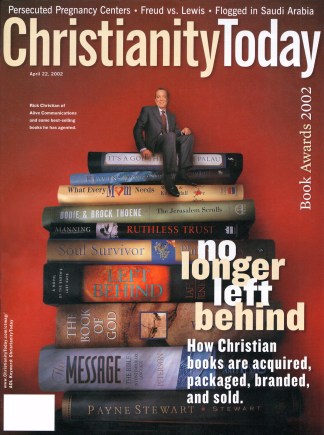Won’t heaven’s joy be spoiled by our awareness of unsaved loved ones in hell?
—William P. Bunnell, Redlands, California
First, I resonate with the question to the depths of my soul. Loved ones of my own, some living, some dead, have not shared my faith in Christ. That is painful.
Second, belief in the outright annihilation of nonbelievers after final judgment (as opposed to an eternal punishment) seems to me biblically illegitimate. I suspect some Christians whose loved ones die without accepting Christ are tempted to embrace the annihilationist view. Scripture, however, seems to show that one aspect of human dignity is that we are built to last. Whether for joy or for sorrow, our souls are eternal.
Third, Scripture and good biblical theology indicate that none will be in hell who did not effectively choose it by following in the footsteps of Adam and preferring their own way to God’s. In some fashion, God reveals himself and his will to everyone, and everyone responds in one way or another (see Rom. 1:18-2:16). But nonbelievers universally make the anti-God choice, and hell is God giving people what they chose. That is reality—retributive reality—and an abiding consequence of following our heart and doing what we want to do; I wish I could persuade more people to face this seriously.
Now pose the question in its toughest form. Imagine a believing spouse or parent who loved, prayed for, and agonized over a dear one who resisted the gospel and died suddenly in an accident. There are no grounds for thinking that this or any other memory will be erased in heaven. So how can it not keep the bereaved one from heaven’s total joy?
Significantly, this is not a Bible problem; instead, Scripture rules out all thought of it ever becoming anyone’s problem. For it tells us that God the Father (who now pleads with mankind to accept the reconciliation that Christ’s death secured for all) and God the Son (our appointed Judge, who wept over Jerusalem) will in a final judgment express “wrath” and administer justice against rebellious humans. God’s holy righteousness will hereby be revealed; God will be doing the right thing, vindicating himself at last against all who have defied him, and there is no hint that this hurts the Judge more than it hurts the sinner. (Read through Matt. 25; John 5:22-29; Rom. 2:5-16, 12:19; 2 Thess. 1:7-9; Rev. 18:1-19:3, 20:11-35, and you will see that clearly.) God will judge justly, and all angels, saints, and martyrs will praise him for it. So it seems inescapable that we shall, with them, approve the judgment of persons—rebels—whom we have known and loved.
That sounds appalling; how can it be? Remember, in heaven our minds, hearts, motives, and feelings will be sanctified, so that we are fully conformed to the character and outlook of Jesus our Lord. This will happen at or before our bodily resurrection. How we shall then think and feel is really beyond our knowing, just as a chrysalis could not know what it feels like to be a butterfly till it becomes one.
But certainly the promise that God will wipe away every tear from believers’ eyes (Rev. 7:17) will find its fulfillment as one aspect of this transformation. In heaven, glorifying God and thanking him for everything will always absorb us. All our love for and joy in others who are with us in heaven will spring from their doing the same, and love and pity for hell’s occupants will not enter our hearts. Their hell will not veto our heaven.
Granted, this sounds to us more like hard-heartedness than Christlikeness, yet Christlikeness is precisely what it will be. Our difficulty is that we cannot now conceive the heavenly condition in a full way.
Wrote Richard Baxter: “My knowledge of that life is small, / The eye of faith is dim; / But it’s enough that Christ knows all, / And I shall be with him.”
J.I. Packer is an executive editor of CT and a professor of theology at Regent College in Vancouver.
Copyright © 2002 Christianity Today. Click for reprint information.










